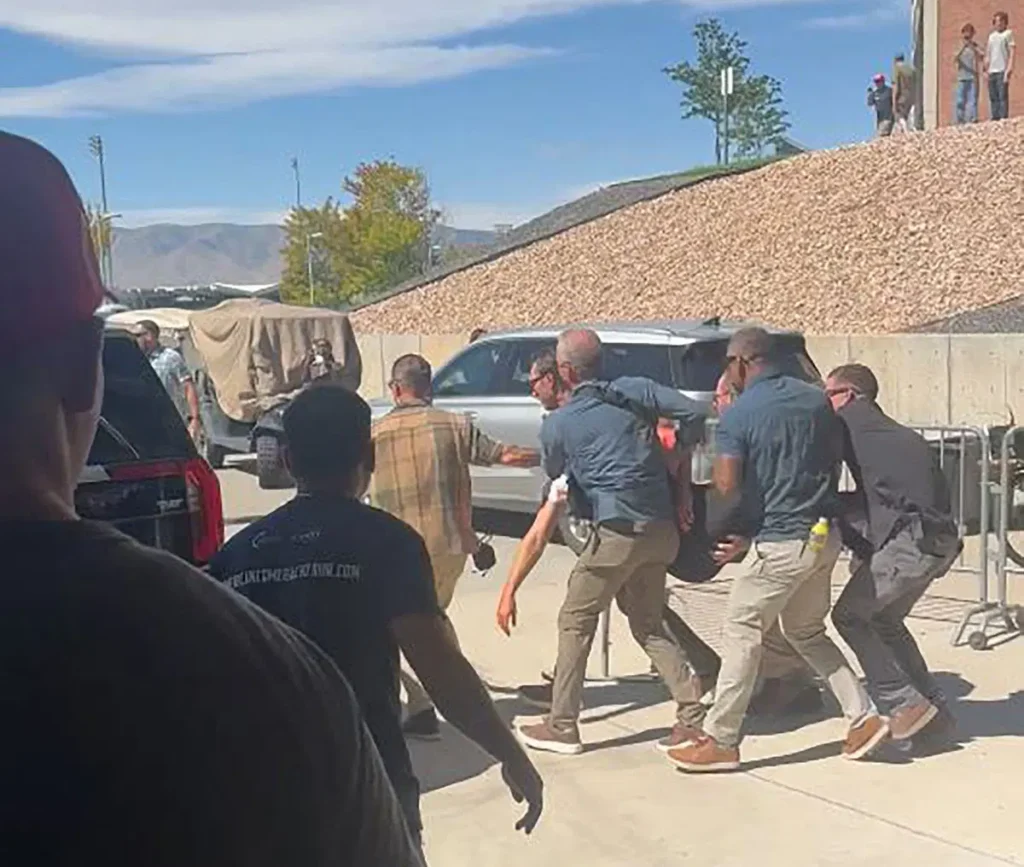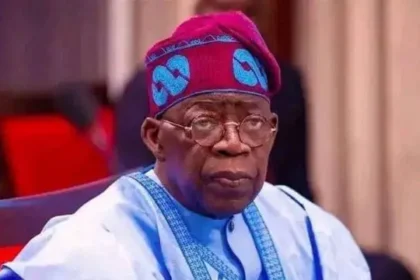The United States is still reeling from the shocking assassination of conservative activist Charlie Kirk, who was gunned down during a speaking event at Utah Valley University on September 10, 2025. Kirk, co-founder of Turning Point USA and a prominent voice in American conservative politics, was addressing thousands of students and supporters at his “American Comeback Tour” when a single gunshot rang out.

The bullet, fired from a bolt-action rifle positioned on a nearby rooftop, struck him in the neck. Despite being rushed to Timpanogos Regional Hospital, he was pronounced dead not long after. What had begun as an energetic rally with close to 3,000 people quickly descended into panic and chaos as attendees screamed, ducked for cover, and tried to escape what they thought might be the beginning of a larger attack.
Almost immediately, law enforcement launched a manhunt. Investigators found the rifle believed to be the murder weapon near the scene and combed through surveillance footage, which showed a man dressed in dark clothing, wearing a cap with a bald eagle over an American flag, moving toward the rooftop stairwell before the event began.

Federal authorities released photos of the suspect, which quickly circulated nationwide, sparking a wave of fear, speculation, and anger. For two tense days, the nation waited for answers, while tributes to Kirk poured in from allies and critics alike, united in shock that a public figure had been targeted so brazenly.
On September 12, authorities announced that a suspect had been captured. The man, identified as 22-year-old Tyler Robinson of Utah, was turned in after someone close to him recognized him in the FBI photos and alerted police. Robinson was arrested without incident and is now in custody, though investigators have yet to confirm a motive. At the moment, it remains unclear whether Tyler Robinson’s actions were politically driven, personally motivated, or the result of other factors. What is clear is that this case has reignited urgent questions about political polarization and safety in public life.

The reaction to Kirk’s killing has been swift and widespread. President Donald Trump condemned it as a “heinous act of political violence” and promised that the suspect would face the harshest possible punishment. Other conservative leaders echoed this sentiment, calling it not only an attack on a man but on free speech itself. Even some of Kirk’s fiercest ideological opponents expressed sorrow and alarm, pointing out that political disagreements should never descend into bloodshed. On social media, tributes flooded timelines as supporters remembered him as a fearless voice who dedicated his life to shaping the next generation of conservatives.
For many Americans, the assassination raises unsettling questions. How could a shooter gain access to a vantage point so dangerously close to a public gathering? Should universities and event organizers overhaul their security measures for political speakers? And perhaps most importantly, what does this tragedy say about the state of political discourse in the United States, where anger and division now seem to so easily tip into violence? These questions will loom large in the weeks to come, especially as legal proceedings against Tyler Robinson begin.
Charlie Kirk’s death is more than a news headline. It marks the silencing of a figure who, for better or worse, helped shape the conversation among America’s youth and conservatives over the past decade. His loss is being mourned not only by his supporters but by a country increasingly wary of the fragile line between passionate political debate and the threat of violence. As the investigation unfolds, many are left grieving and reflecting on how such a tragedy was allowed to happen, and what it means for the future of public life in America.















